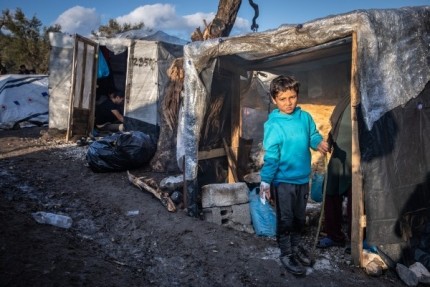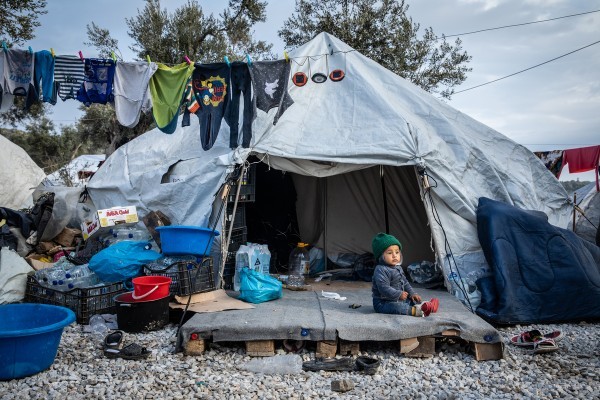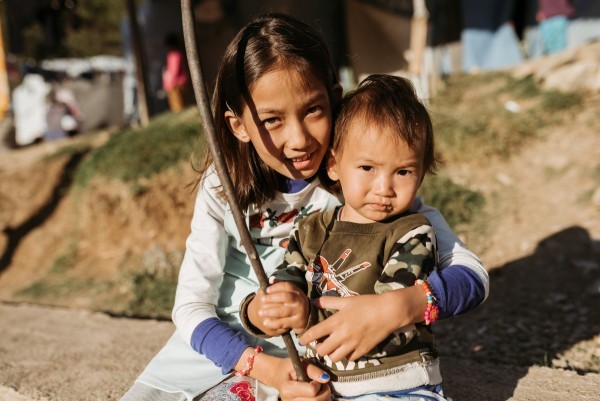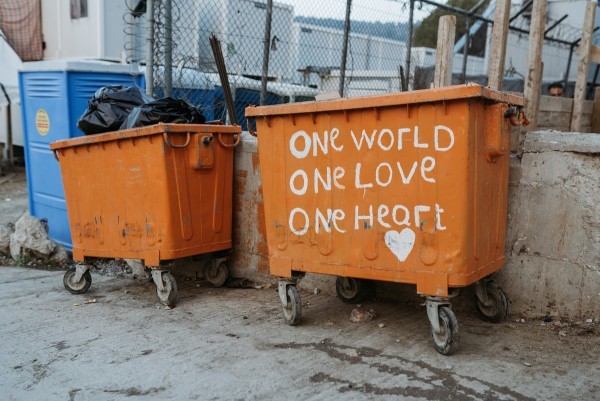
Story by Angelika S.
There are places you would never choose to call your home. There are lives you would never choose to live. There are destinies you would never choose to experience.
All of these seem to be combined in a place called Camp Moria: 17,000 to 20,000 people crammed together in a place designed for not more than 3000, the smell of decay hanging in the air, overflowing garbage bins everywhere, children playing in the dirt, people queueing up for hours for getting food, taking a bath or getting medical help.

When you take a walk through the camp you can look into thousands of faces, faces that are marked by the traumatic experiences they have survived. The list of these experiences is long: war, armed conflict, violence, civil unrest, starvation, persecution, human loss, loss of belongings and much more. The stories behind these faces may be similar, and yet they are so unique. Every single person in the camp has his or her own story and this story had a personal impact on his or her life. There may be despair, hopelessness, depression, or even anger or aggression.
And this is what the camp reflects at first glance: an atmosphere of darkness, lifelessness, and low aspirations. People’s lives have been torn apart, left with only the debris of their dreams they once wished to live, like a forest burned down by a devastating fire.
Yet, if you have a closer look, you may also see something else. In the midst of all the rubble there are beautiful flowers making their way through the ashes.
Someone has made a tiny, beautiful garden around his hut, paving a path of white stones from the gate to the entrance of his hut.
In the same neighbourhood someone has created an idyllic archway to his hut decorated with plants and flowers.
A small girl dressed like a princess gives you a bright smile when you pass by and wave at her.
A mother is sweeping in front of her home, which is tiny and poor but neat and clean.
A family of six invites you to their home that consists of one single room. They have prepared a “table“ with tea, biscuits, and their national sweets. An atmosphere of love and generosity welcomes you. They are interested in your life, your family and your background. ‘You are always welcome to visit us‘, they tell you as you leave them to continue your walk through the camp.
In the midst of the darkness there is light, in the midst of the rubble of broken dreams there is hope, in the midst of the ashes of torn lives there is beauty. But we have to open our eyes to see this. It may not be visible at first glance or on the surface—it can only be seen when you take a deeper look, when you look beyond the obvious.


This is also true for our own lives. There may be hardships, there may be pain or loss; still it is not our surroundings that determine our lives, but the way we deal with them. We can make the ashes of our lives blossom and bring forth a beauty that cannot be compared with anything else.
Together, we can help provide communities like Moria with food and other necessities during this time, as well as help prevent and slow the spread of COVID.
WILL YOU PARTNER WITH US?

Leave a Reply